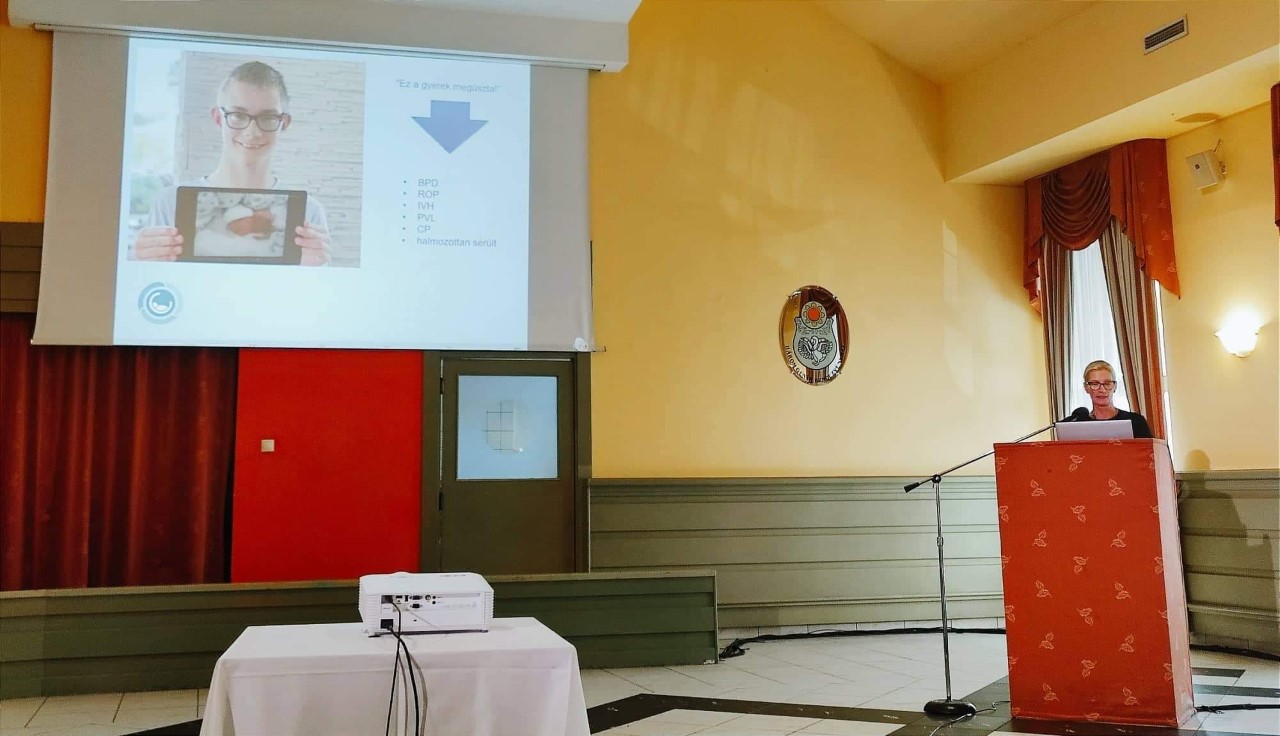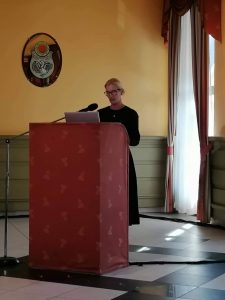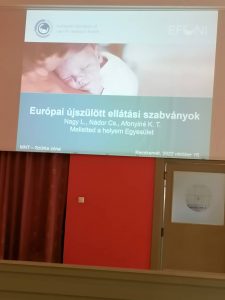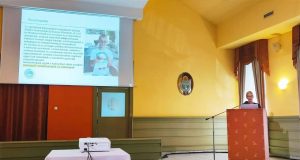
2022-12-14 / News
Conference report by Lívia Nagy Bonnard, founding member of “Melletted a helyem Egyesület” – “Right(s) Beside You Association” in English – and a member of the Parent, Patient and Public Advisory Board of the ESCNH as well as a member of the Parent Advisory Board of EFCNI.
——–
Delivery room: “Hello doctor! A woman, 22+6 weeks pregnant, arrived in the delivery room with regular contractions and a dribbling amniotic fluid. What should we do? Should we start tocolysis? Start her on antibiotics? Do we start steroid prophylaxis? Please come down, the obstetrician is waiting!”
Doctor: “I’m coming, I’m in a hurry…”
Do we really know what is needed in Hungary today to properly care for an unborn 23-week-old premature baby? Do we have the right equipment? Do we have enough nursing staff that is also well-trained to receive such a baby? What should the obstetrician communicate and what should the neonatologist’s position be? How do we involve the parent in the decision-making? Where is the intersection between medical decisions, ethics, and law? How do we manage the experience of loss for parents and carers? What happens to such a child when he or she survives and grows up? What will happen to his or her family?

© Livia Nagy Bonnard
During a conference on the topic of the “Grey Zone”, our invited speakers tried to answer these questions and encouraged participants to think together during the conference, which took place on 15 October 2022, the World Day of Perinatal Bereavement, in Kecskemét, Hungary.
The conference was organised by the Hungarian Society of Neonatology and “Melletted a helyem Egyesület” (“Right(s) Beside You”), Hungarian patient association. The “grey zone” was defined as a situation in which medical evidence is so ambiguous that healthcare professionals do not have clear guidance on what kind of treatment would be the best option for the patient. The concept also considers the often-complex relationships between various members of the medical staff, parents, and the patients themselves which underwrite an already challenging decision-making process.
The conference presentations were logically linked to each other and covered all areas of the “Grey Zone”, understanding the situation of the obstetrician, neonatologist, and intensive care nurse in the given situation, but also included the perspectives of a psychologist dealing with grief and a lawyer covering questions of medical ethics. Together, the presenters worked towards an approach to handle instances of the “Grey Zone” in hospital settings in Hungary when preterm births are concerned.
In the final part of the conference, during the roundtable discussion, participants reflected on the stories of parents who have been involved in the issue and touched on all aspects of the “Grey Zone”. Participants agreed that the situation requires a solution and suggested the development of a national guideline on how to handle the “Grey Zone” in Hungarian hospitals. The “European Standards of Care for Newborn Health” could provide a good framework for this undertaking.

© Livia Nagy Bonnard

© Livia Nagy Bonnard
You are currently viewing a placeholder content from Facebook. To access the actual content, click the button below. Please note that doing so will share data with third-party providers.
More InformationYou are currently viewing a placeholder content from Instagram. To access the actual content, click the button below. Please note that doing so will share data with third-party providers.
More InformationYou are currently viewing a placeholder content from X. To access the actual content, click the button below. Please note that doing so will share data with third-party providers.
More Information